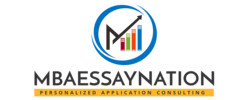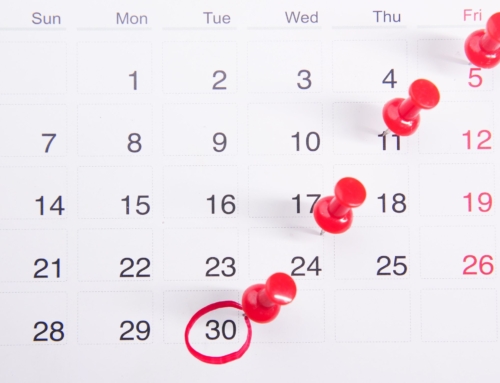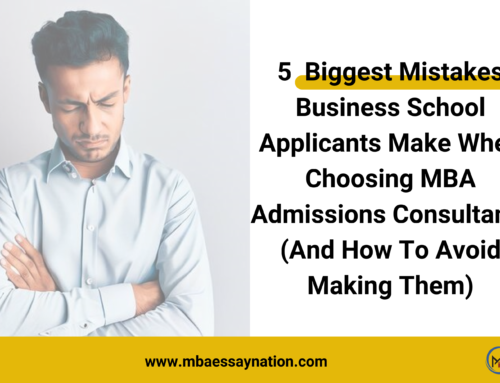Looking for MBA interview preparation tips? Here’s the thing about the business school interview. It’s not just narrating your achievements to the Adcom. In fact, your MBA interview is as much about your non-verbal communication as it’s about verbal communication.
Actually much more. Non-verbal communication comprises a whopping 93% of the overall communication pie. At 55%, our body language forms a huge component of how we are perceived by our interviewers. I’ll outline simple do’s and don’ts for you as you prepare for your business school interviews. Let’s start with body language because the first thing interviewers notice about you is how you carry yourself. The substance you are made of comes much later.
1. Dress Well
Most business schools specify formals as the dress code for the interviews. Buy well-fitting clothes which are neither too tight nor too loose. Make sure you are not just comfortable wearing them but also looking comfortable in them. Without a doubt, your confidence gets a huge boost when you dress well. Fresh breath, polished shoes, trimmed nails, not too loud make-up, and no over-the-top jewelry are other things to keep in mind.
2. Body Posture
Your posture can tell many a thing about you even before you say anything. Walk tall, keep your back straight, and don’t hunch your shoulders. When asked to sit, make sure you sit straight in the chair. Leaning too back or too forward can be interpreted as arrogance or sloppiness. Try not to clasp your fingers hard as it will be seen as nervousness, instead keep your hands lightly in front of you on the desk.
3. Handshake
Give a firm handshake lasting not more than 2-3 seconds and make eye contact as you shake hands with each interviewer.
4. Smile
When you smile warmly and greet someone, it’s the first step towards breaking the ice. Smile sincerely when you shake hands with your interviewers while maintaining good eye contact with each one of them.
5. Breathe!
We all feel nervous when attending interviews and one of the first signs of nervousness is breathlessness. We forget to breathe! Practice deep breathing when you are outside waiting for your turn and as you walk toward the interview room. Remember breathing clears up your head and prevents muddled thinking, allowing you to converse with your interviewers in a calm manner.
6. Facial Expressions
Be sincere and respectful as you respond to your interviewers’ questions. During certain situations, we may be subjected to difficult questions, interrupted mid-way, and even have multiple interviewers throwing questions at us at the same time. This can make us feel threatened or intimidated. And we’ll become flustered or defensive or both, emotions that easily show on our faces.
Don’t assume anything negative. Instead, focus on what’s being asked and respond politely with a smile to the best of your knowledge.
7. Active Listening
One of the best ways to engage with your interviewers is to demonstrate that you are carefully listening to them. Nod your head, seek clarifications, and paraphrase questions, where required, to ensure you respond correctly to what’s being asked. Always wait for the interviewer to finish asking questions. These are great indicators of active listening. We often tend to rehearse our responses in our minds while someone is in the middle of asking us a question. This is a strict no-no as we don’t pay attention to the interviewers’ questions. If you need time to think about a question, request a minute before responding.
8. Observant
Often, we get so engrossed in thinking of and responding to the questions, we forget to observe the visual cues from our interviewers. Being observant requires one to be acutely aware of nuances such as raised eyebrows, stifled yawns, or a bored look. These generally occur when long-winded answers are given, or worse, incoherent responses peppered with industry jargon and without proper context are provided. By observing your interviewers’ expressions, you can decide whether you need to cut short your rambling or divert their attention with an interesting piece of information.
9. Gestures
As you verbally respond to interview questions, use your hands to complement your narrative. It’s best to use open hand gestures such as palms facing upwards or towards yourself. Let’s say you were to describe a quantity, such as the number of team members or revenues earned, you could list the number with your fingers. This is a powerful way to help your interviewers remember your achievement. You can use your hands to bring out the contrasts when explaining something like a sudden growth in customer acquisition or sales. Put simply, your hand gestures are a powerful way to communicate your stories and amplify your trustworthiness and credibility.
10. Feet firmly planted on the ground
When you keep both your feet on the ground, it increases your creativity and your ability to handle complex thought processing – crucial skills when responding to difficult or unusual interview questions.
Conclusion
While the field of body language is vast with numerous tactics on how you can appear more charismatic by adopting the right body language, the above tips are a concise set that’ll help you create a favourable impression during your business school interviews.
Call to Action
If you liked this post, check out our blog for more such tips on business school interviews and writing your essays. And if you need help with your B-School interviews, let’s catch up!
Read what our client Jahnvi Doshi, an ISB alumna, had to say about practicing for her interview with us –
“I sought Deepthi’s help when preparing for my ISB interview and she undoubted played a pivotal role in my admission. Over three calls Deepthi helped me transform my rambling and muddled introduction into a crisp and convincing pitch that I was confident about when I walked into the interview. This was possible because Deepthi’s approach is unique — she listened keenly and patiently, and with great care she drew out the threads of my story that were most interesting, and those that required some additional thought and work. Her approach was affirming rather than dismissive, and she encouraged me to retain me own voice rather than attempt to recite standard canned management incantations. Work with her, you’ll not regret it.”







